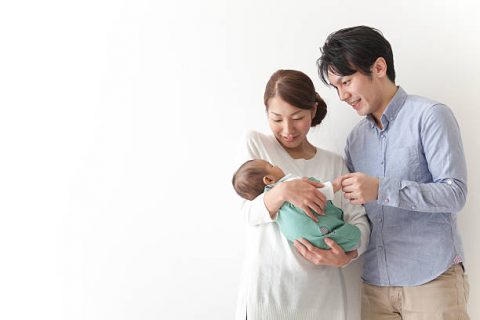Researchers are quite supportive of this unconventional naming trend as it can promote individualism in the “land of the rising sun”.
A recent study on naming trends shows that Japanese parents are increasingly wanting to give their children unique and personal names. The change in naming can also be seen as a sign of major changes in Japanese society.
For previous generations of parents in the land of the rising sun, the rules for naming babies were often about safety. However, a study on baby naming trends has revealed that the trend for “weird” baby names is on the rise.

The old naming rules are geared towards child safety.
The results of this study, published in a recent issue of the academic journal “Current Research in Ecological and Social Psychology,” are based on a survey of naming trends across Japan. Version from 1979 to 2018.
During the early years of the study, the most common name for boys was Daisuke, while for girls it was Tomoko. The kanji characters are usually read as Ren for boys and Yuzuki for girls.
From 1980 on, the naming trend began to be personalized and increasingly unique over the next 40 years. It proves that Japanese culture is also increasingly moving towards uniqueness and independence, instead of conformity and dependence as before. And it also includes names that stand out from the crowd.

Gradually, Japanese fathers and mothers want their children to become “unique” and stand out.
The researchers then also pointed to a number of reasons why this change is gradually becoming more accepted, such as economic wealth, urbanization, social mobility and ascending to the throne. of individualism.
“A unique name will get more attention from people, which can increase the likelihood that the name will be remembered,” said Yuji Ogihara, assistant professor at Tokyo University of Science.
This trend reached its peak in 1994, when Shigeru Sato and his wife, Ayako, registered their first son’s name with the city government of Tokyo’s Akishima district as “Akuma”. The name translates as “Devil” and Sato told reporters he chose it because “There will only be one Japanese with this name. If you listen to it once, you will never forget it. That’s the best name possible. “
The city initially accepted, but senior officials later changed their mind over concerns that the child would be bullied. Perhaps the parents “abused the right to name their children”. The case went to court and the family later agreed to change the boy’s name with other kanji characters, but with the same phonetic pronunciation, meaning the child would still be named “Akuma”. Sato also confirmed he planned to name any other sons in the future “Teio”, meaning emperor, and would choose “a cute, normal name” for his daughter.

More and more strange names like “Nike”, “Pudding”, “Naruto”… are used.
The most special thing is that towards the end of this decade, the Japanese media began to report the emergence of the phenomenon of “name kirakira”, which means shining/sparkling names. These can be mentioned as “Nsaiki” – pronounced like the famous sportswear brand Nike, “Purin” – like pudding, or “Lovely”, “Prince” and even “Pikachu”, “Naruto”. and “Kitty”.
While many people are influenced by “manga” characters and TV shows, others prefer the Japanese pronunciation of Western names, such as “Masshyu” for Matthew, “Makkusu” for Max or ” Errin” instead of Ellen.
See more: Withdrawing money when the ATM has a problem, the male bartender accidentally has 25 billion to spend

